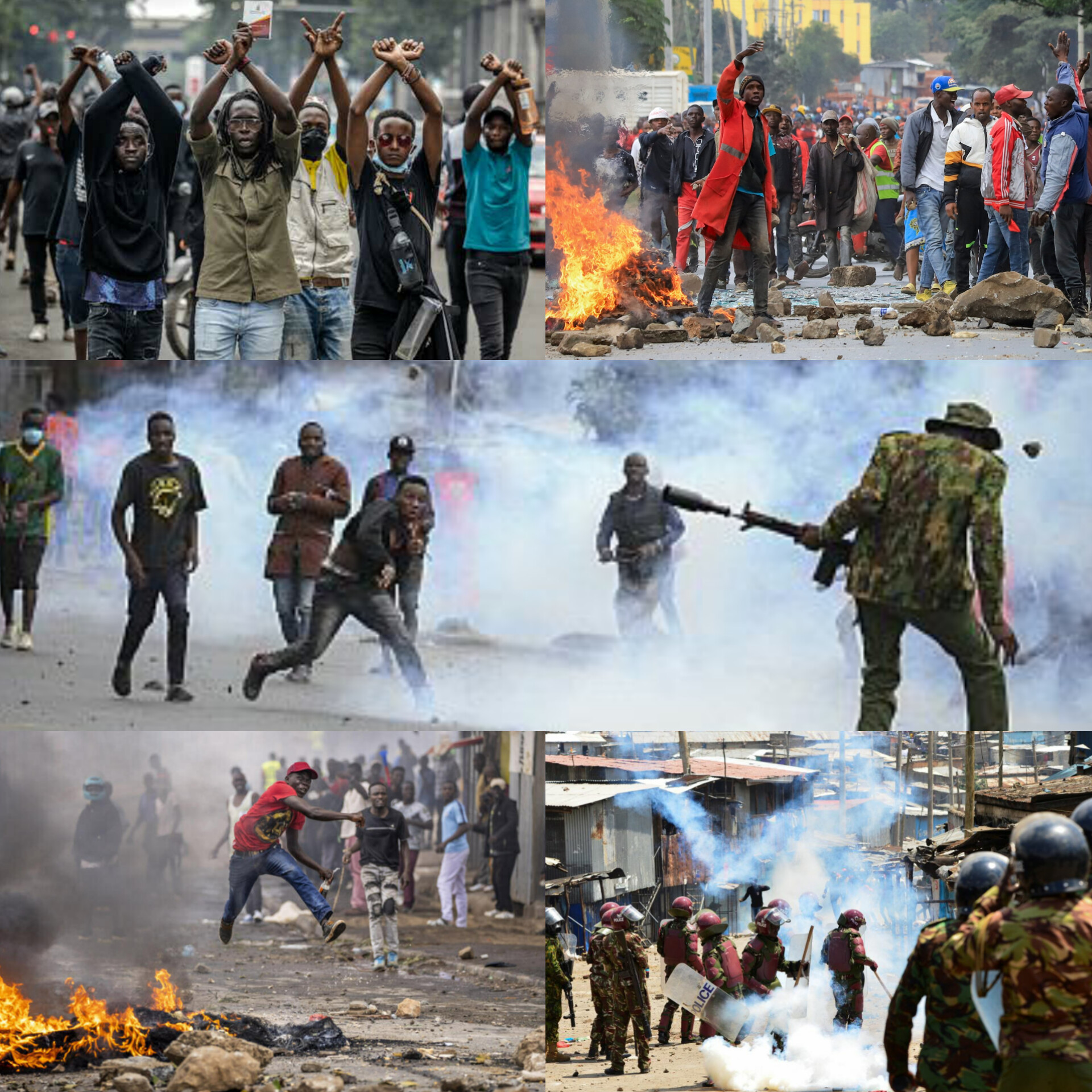Kenya Protests Turn Deadly: 13 Killed, Military Deployed After Parliament Ransacked

The death toll from protests in Kenya has risen to 13, according to an official from the main doctors’ association, following violent clashes during anti-tax hike rallies.
The protests, which started peacefully last week, escalated on Tuesday when police opened fire on demonstrators who ransacked parliament.
AFP reports that the violence left parts of parliament ablaze and caused injuries to scores of people, shocking the nation.
In response, President William Ruto’s government deployed the military to support police efforts in managing the crisis.
The protests, largely led by youth, began as peaceful demonstrations against proposed tax increases in the capital Nairobi and across the country.
However, tensions escalated sharply on Tuesday afternoon as police fired live rounds at the crowds, who then stormed the parliament complex.
Defence Minister Aden Bare Duale announced the army’s deployment to address what he termed as a “security emergency.”
“So far, we have at least 13 people killed, but this is not the final number,” Simon Kigondu, president of the Kenya Medical Association, told AFP, adding that he had never witnessed such violence against unarmed civilians.
The media reflected the chaos, with the Standard newspaper’s headline reading “Deaths, mayhem,” while the Daily Nation described the situation as “Pandemonium,” noting that “the foundations of the country have been shaken to the core.”
An official at Kenyatta National Hospital reported that medics were treating 160 people, some with bullet wounds.
In a late-night press briefing, President Ruto condemned the violence and warned that his government would take a hard stance against what he termed “criminals” among the demonstrators.
“It is not in order or even conceivable that criminals pretending to be peaceful protesters can reign terror against the people, their elected representatives, and the institutions established under our constitution and expect to go scot-free,” he said.
The unrest has drawn international concern, with the White House calling for calm and over 10 Western nations, including Canada, Germany, and Britain, expressing shock over the events outside the Kenyan Parliament.
UN Secretary-General Antonio Guterres and African Union Commission Chair Moussa Faki Mahamat also voiced deep concern.
Veteran opposition leader Raila Odinga, who heads the Azimio coalition, accused the government of using “brute force on our country’s children,” while rights watchdogs reported abductions of protesters by authorities. The police have not responded to requests for comment.
The protests stem from long-standing grievances over the rising cost of living, which intensified last week as lawmakers debated proposed tax hikes in the 2024 finance bill.
The government argues that the tax increases are necessary to service Kenya’s massive debt of 10 trillion shillings ($78 billion), about 70 percent of the GDP. After retracting some controversial proposals, the government now plans to raise fuel prices and export duties.
Despite being one of East Africa’s most dynamic economies, a third of Kenya’s 52 million people live in poverty, highlighting the socio-economic challenges facing the nation.







